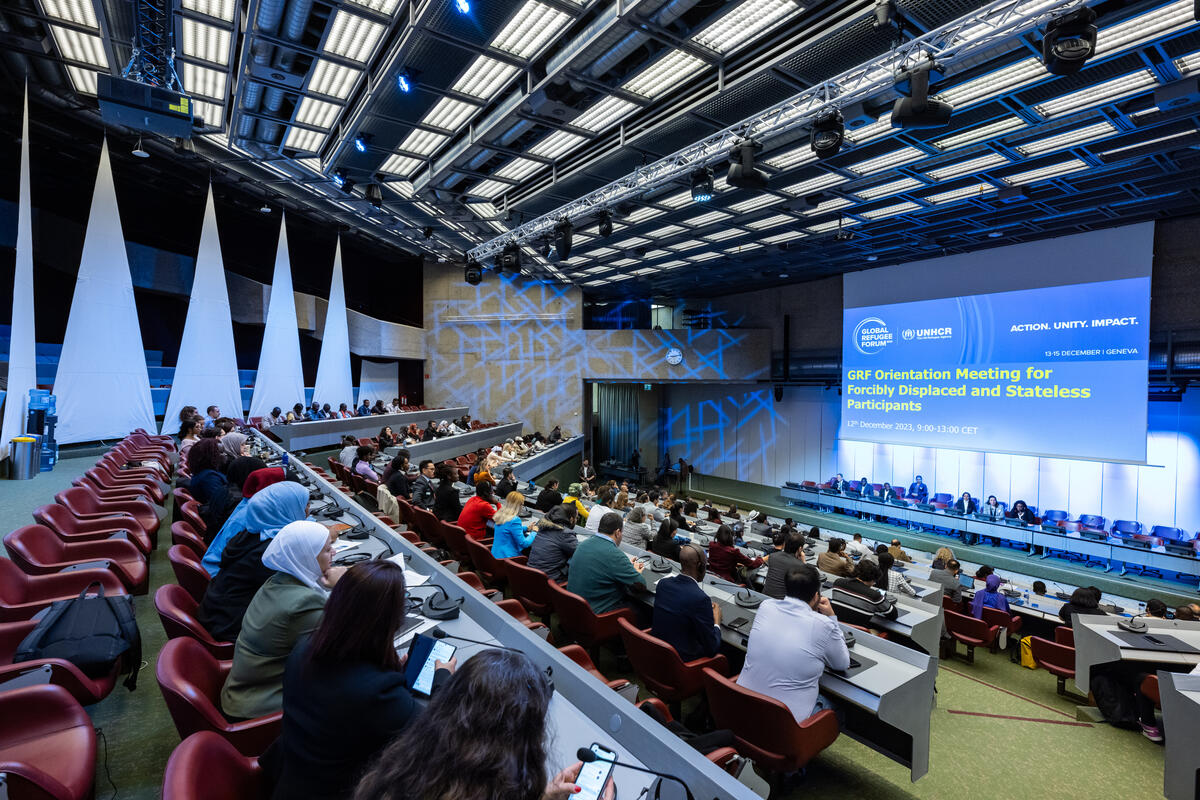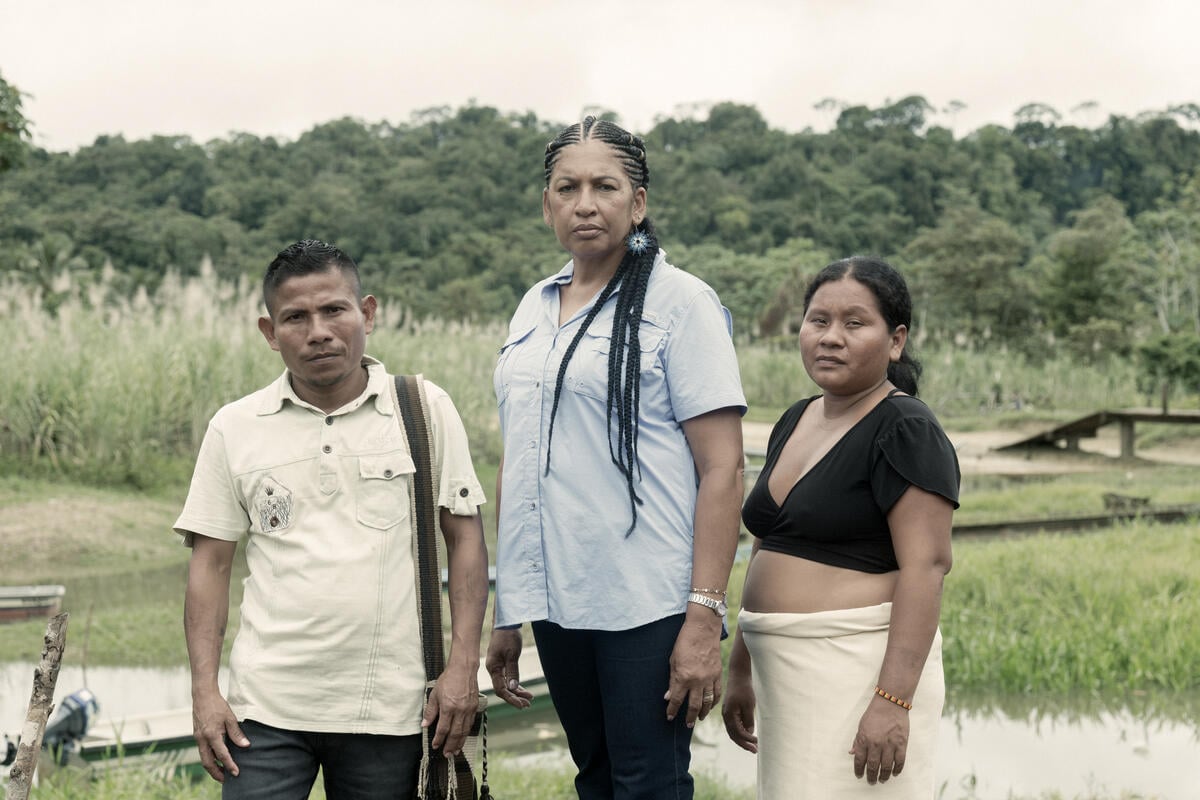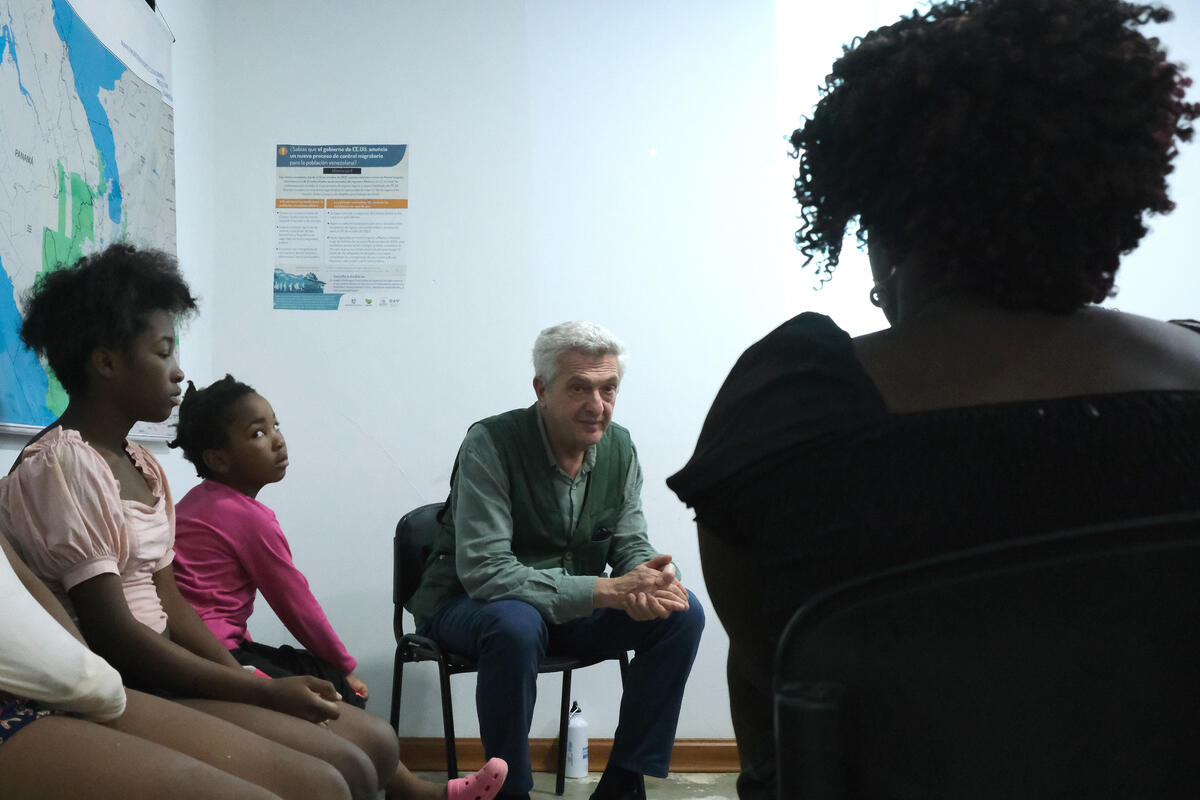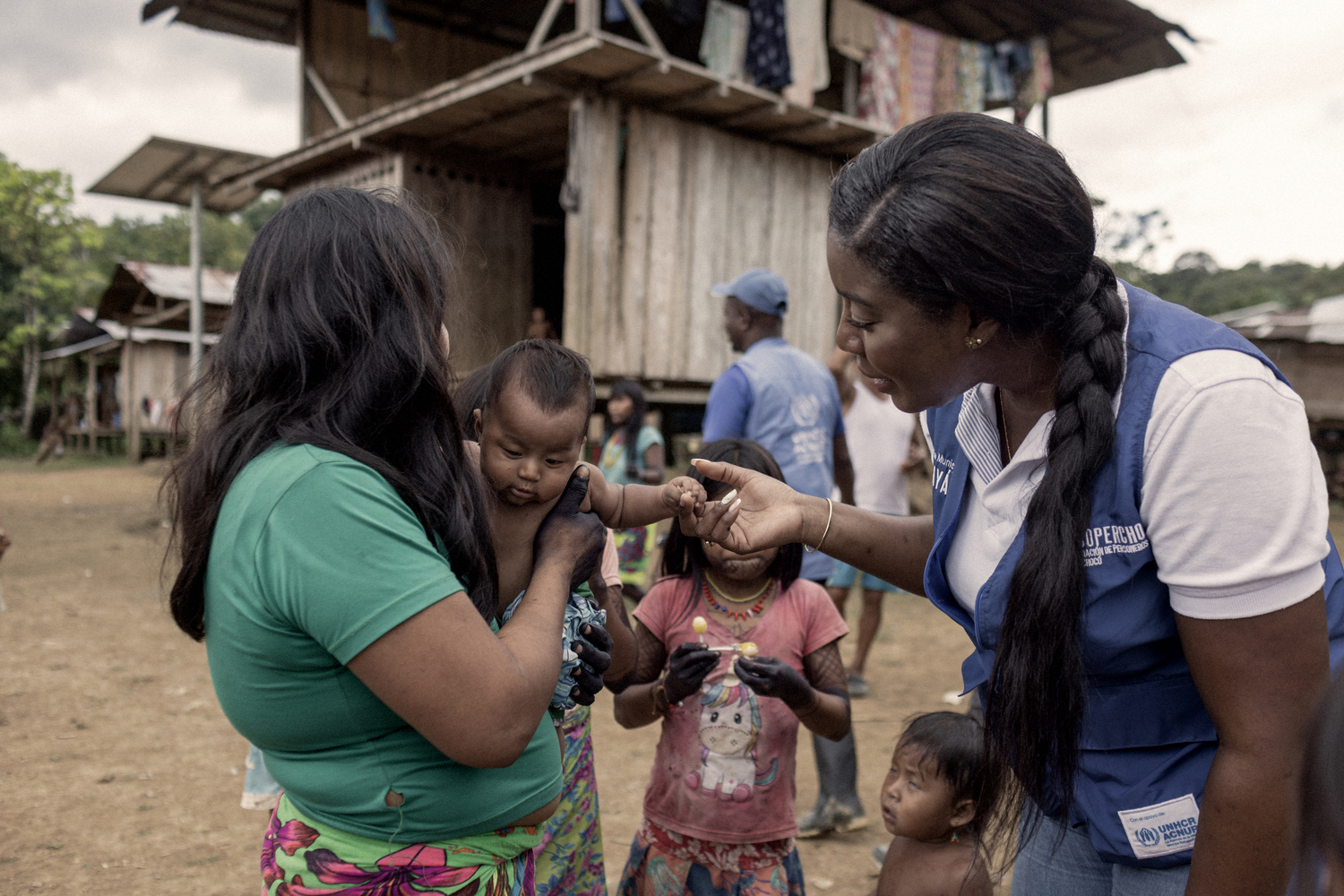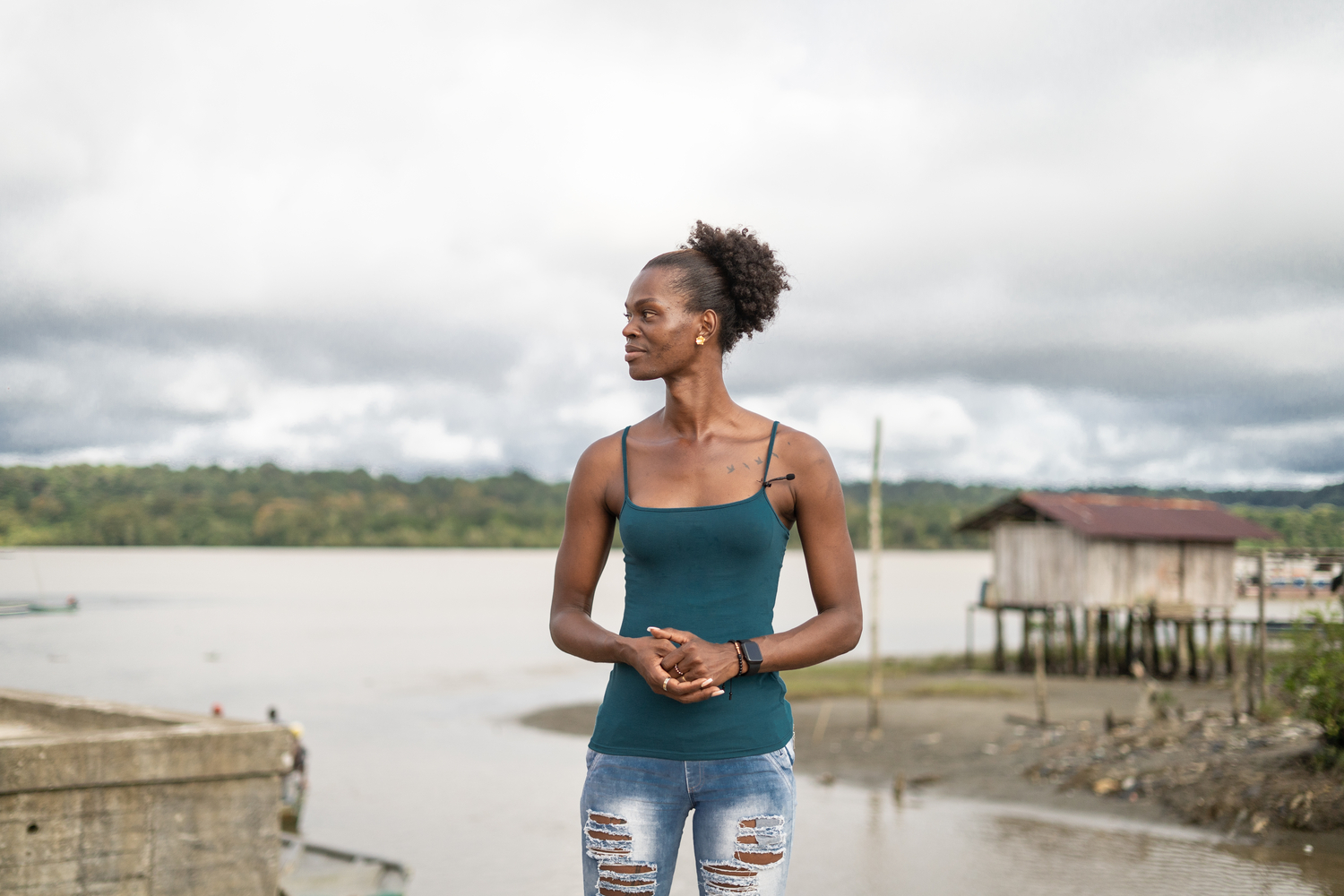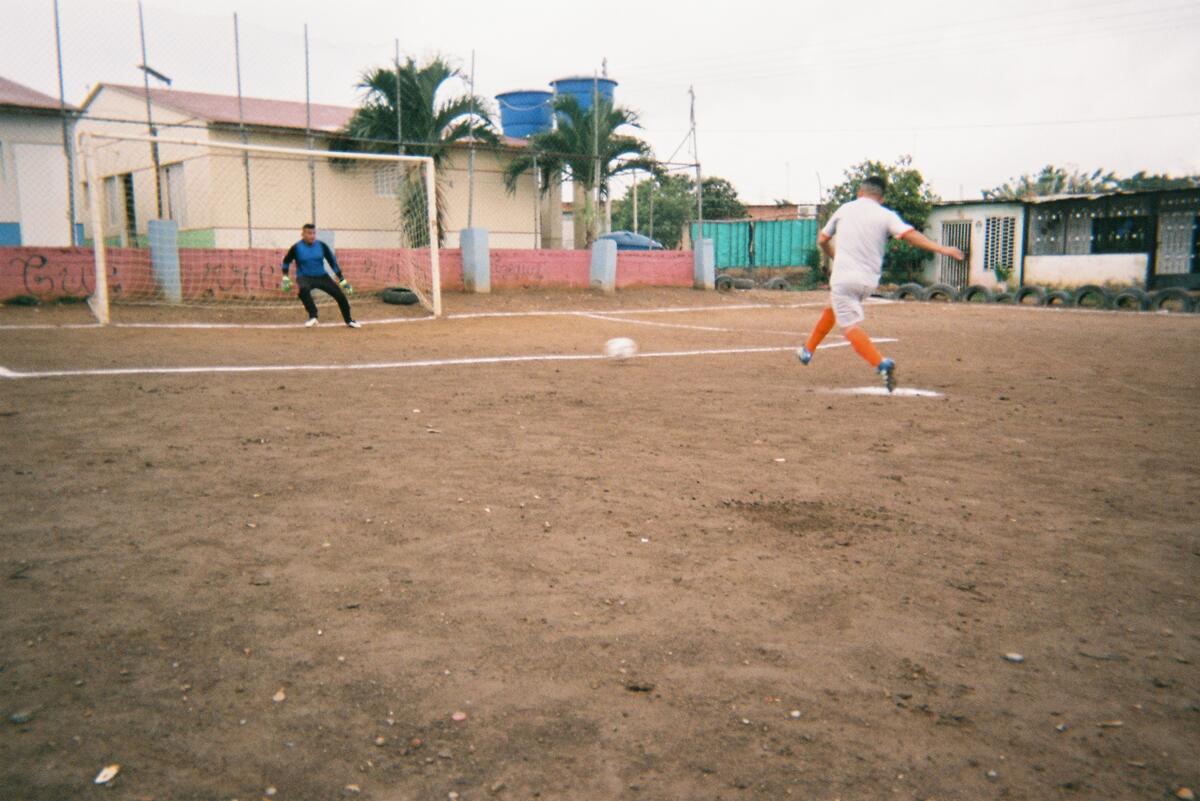Colombia: Chocó displaced get assistance
Colombia: Chocó displaced get assistance
In Colombia, the number of people who have fled their homes along the Bojayá River in the north-western province of Chocó ahead of potential fighting has risen to nearly 1,300, according to a UNHCR team which was dispatched to the Bojayá region late last week. The Afro-Colombian communities had seen armed groups building up forces along the river near their villages and fled to the town of Bellavista in Bojayá municipality. Roughly 7,000 people live in the municipality and 5,000 of them could be at direct risk of displacement, according to local authorities.
The displaced have been receiving emergency food rations, which were already on hand thanks to provisions made by the authorities and the World Food Programme in November and December 2004, when UNHCR first raised an alert about the increasing risk of confrontations in the Bojayá area. More food and aid is expected in the coming days from the ICRC, including mosquito nets, mattresses and products for personal hygiene. Health is a major concern. An average of two new cases of malaria are reported every day. The Spanish NGO Médicos del Mundo, which is running a health project in the area, is providing medicine for the displaced people.
UNHCR has been ensuring that the displaced people have a say in decisions about assistance. Our staff worked with the local authorities and the communities to make sure that a census of the displaced people was carried out properly, and also helped in the process of accommodating people and distributing food to new arrivals in the town. UNHCR staff also gave IDPs [internally displaced people] basic information about their rights under Colombian law, including their entitlement to emergency assistance for at least three months and the right to education and health care.
UNHCR is discussing with authorities and IDP leaders further contributions, including helping build temporary shelters. These actions will be coordinated with UNICEF and IOM who we are working with closely.
There is also concern that some 20 indigenous communities along the nearby Cuia River, as well as the Bojayá River and its tributaries, may be affected by the worsening security situation. It is believed that some 2,000 indigenous people in those communities are largely deprived of food due to fear of getting caught in armed clashes near their territories. While the priority has been to get aid to those already uprooted, a humanitarian mission to verify the situation of the blockaded indigenous communities is scheduled to depart within the next few days.
In a separate development, in the region of Condoto (southern Chocó), communities blocked by irregular armed groups have now received food aid from the Social Solidarity Network (the Government agency dealing with IDPs) as a result of a joint effort by UNHCR, the Catholic church and the local authorities. UNHCR is also participating in the local municipal committee which is coordinating the emergency response to the situation.

